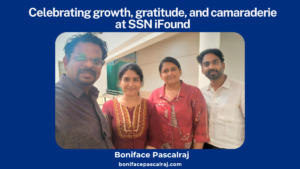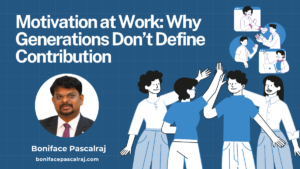At SSN iFound, we frequently witness pivotal moments where startup founders confront gaps in their knowledge, leadership, or alignment. One such moment occurred recently during a mentoring session with one of our incubated startups.
This particular startup has two co-founders. Both come from similar technical backgrounds, but their career paths diverged. One co-founder stayed immersed in core technology and product development, while the other transitioned into administrative and management responsibilities during their corporate stint. Today, in the startup, the former leads product development and technical execution, and the latter oversees business operations.
During a session with an operations mentor, it became evident that the co-founder leading business and operations was unfamiliar with some of the basic technical aspects of their own product’s manufacturing process. When asked questions like the time taken for specific production steps, resource dependencies, and the process flow, the cofounder candidly admitted that they would need to check with their technical counterpart.
This led to a moment of pause. Is this acceptable? Should cofounders always know what the other is doing? Or is it reasonable to divide responsibilities so sharply that technical understanding becomes secondary to business management?
The Mentor’s View
Interestingly, the mentor—a seasoned operations expert—did not view the situation as a red flag. In fact, he appreciated the co-founder’s honesty and expressed interest in visiting the startup’s lab to get a better understanding of the process directly. This willingness to engage further, rather than criticise, was a reminder of how effective mentorship should work: with empathy, curiosity, and contextual support.
My Reflection: Shared Context is Still Essential
While the mentor’s approach was balanced and encouraging, the session raised an important question in my mind:
Shouldn’t every founder, regardless of their domain focus, have at least a working understanding of what their cofounder is doing?
In my experience working with startups, including my own time at Founder Institute, we were constantly reminded that being a cofounder means co-owning not just the equity and vision, but also the story. A cofounder might not need to write code or operate machinery, but they must understand the process enough to:
- Represent the product in investor discussions
- Articulate operational timelines
- Plan around technical bottlenecks
- Make informed trade-offs in strategy
“Great co-founders do not just split the work. They co-own the business.” That idea has stayed with me. Founders can and should divide responsibilities. But understanding must never be siloed.
Why This Matters in the Real World
A business-focused cofounder who cannot describe the product’s workflow may struggle with investor due diligence, vendor partnerships, or customer onboarding. Conversely, a technical cofounder disconnected from go-to-market efforts might build a brilliant product that no one adopts. The magic lies in cross-functional awareness.
Steve Jobs was once ousted from Apple because the board felt he was not the right leader for a scaling company. He returned later, not only with vision but with deep product and operational insight. Meanwhile, companies like Flipkart saw their founder-CEOs step aside when the scale demanded different expertise. Yet Mark Zuckerberg continues to lead Meta because he grew with the company, evolving from technical founder to platform builder.
The constant across these stories? Those who grow with their business never stop learning the parts they don’t directly own.
Our Practice at SSN iFound
We often encourage:
- Joint mentoring sessions: Founders should be present together to build collective understanding.
- Cross-role exposure: Founders should periodically shadow each other’s functions.
- Narrative co-ownership: When pitching, both cofounders should be able to convey the full story—product, market, and business.
This is not just about investor readiness. It is about internal alignment, team confidence, and long-term resilience.
So while it is encouraging that the mentor plans to visit and engage further, I hope the cofounders take this opportunity to learn each other’s functions more deeply. Because startups do not just scale with capital or code. They scale with coherence.
Let me know if you would like to explore similar real-world lessons from startup mentoring sessions. If you are a founder reading this, I invite you to reflect: How well do you know your co-founder’s world?



